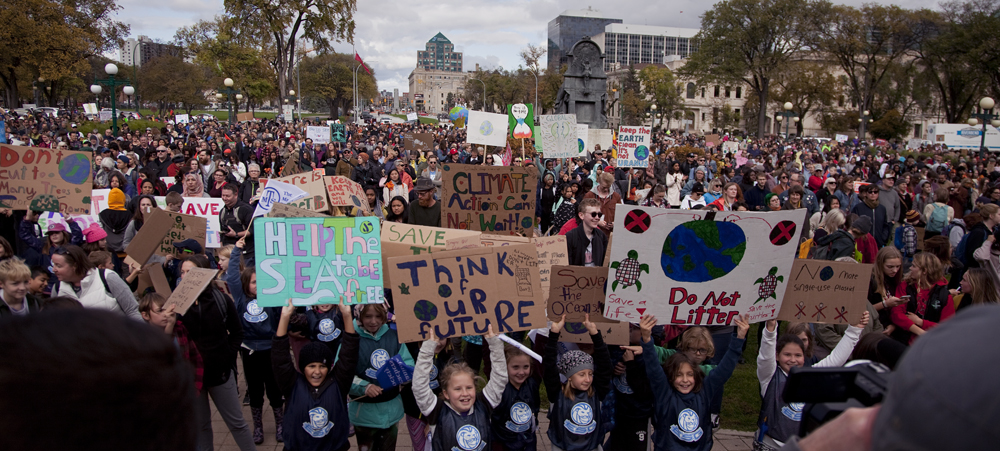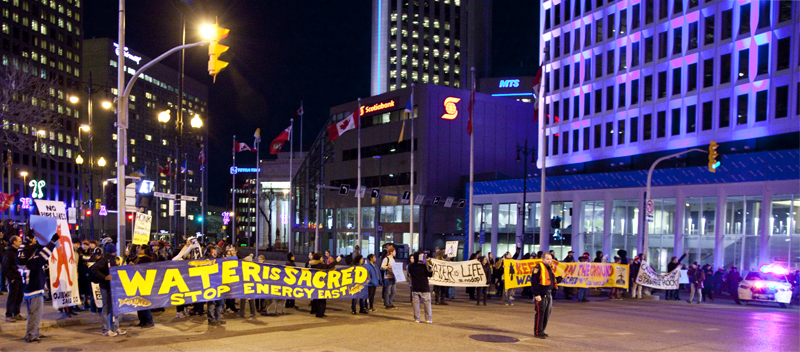
The right to public protest is essential to our democracy and the freedom of expression and peaceful assembly. The past year has seen Canadians taking to the street to express concern over issues that matter profoundly for all of our lives. Most famously, protests over the pipeline through Wet’suwet’en territory in BC and climate change, and Black Lives Matter and defund the police have been carried out across the country. Such protests allow citizens to speak out in response to the action or inaction of government and other powerful groups.
Here in Manitoba over the past year, many groups came out to peacefully protest on various social and political issues. In February of 2020, groups blockaded railways and people took to the streets to share their message of support for the Wet’suwet’en. In June, protestors came out in the hundreds to lend support to the Black Lives Matter movement in the States but to also call attention to racial inequality in our own community and to demand decolonization of the Winnipeg Police Service. Most recently, Manitobans came out to protest the Indian government’s legislation that jeopardizes the livelihood of farmers in the Punjab.
In response to these movements, in the fall of 2020, the Manitoba government introduced The Protection of Critical Infrastructure Act, an act which aims to prevent peaceful protest in Manitoba. Disturbingly the proposed act has not been made available to the media or general public for scrutiny, but we might have some idea of its contents by looking to Alberta’s Bill 1, which came into force in June of last year, also following pipeline and climate change protests in that province. The proposed aim of Bill 1 is to protect “critical” infrastructure by criminalizing public protest.

The push to criminalize protest, after a year protesting such racialized issues, is highly suspicious, especially as reports come out across Canada and the States about the unequal enforcement of this kind of legislation along racial lines. In their book Policing Indigenous Movements, Andrew Crosby and Jeffrey Monaghan examine the growing surveillance indigenous groups face as they increasingly organize to fight social and environmental justice issues in Canada. The data from this surveillance, the authors argue, is then used to criminalize dissent and curtail civil liberties along racial lines. As Robin Tress has pointed out on the Council of Canadians blog, “When Indigenous Peoples protest, they are considered enemies of the state. When settlers protest, they are treated as sensitive stakeholders critical to the resolution of the conflict.”
Along these lines, the US has also seen a surge of legislation to prevent protest following a period of social and political unrest. Many of these laws also cite the protection of “critical infrastructure” as being their aim. However, critics have voiced concern about the ways such legislation will be unequally enforced.
Section 2(c) of the Charter of Rights and Freedoms guarantees the right of peaceful assembly in Canada. Let’s ensure that our rights and the rights of our neighbours are not infringed on by the passing of this bill. See MEJC’s website for more information and for resources to contact your MLA.
Contributor: Jana Millar Usiskin – Council of Canadians Winnipeg Chapter Member